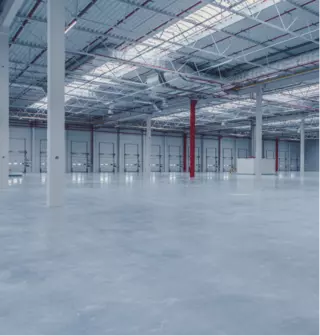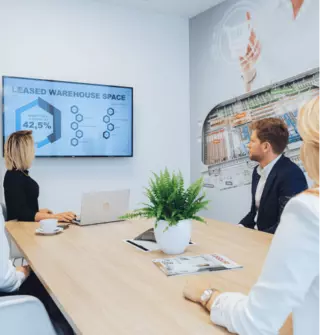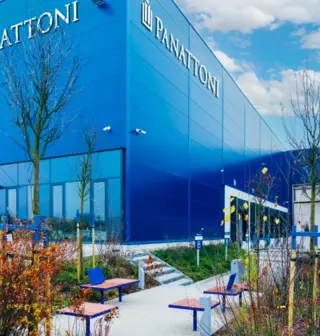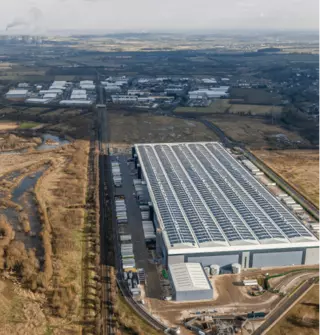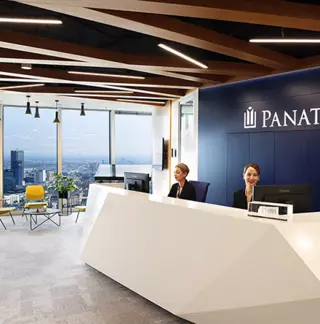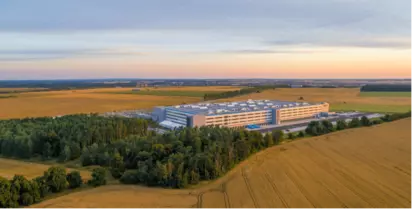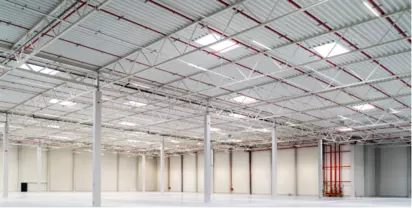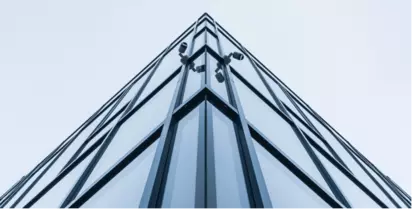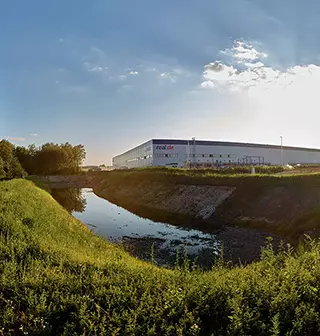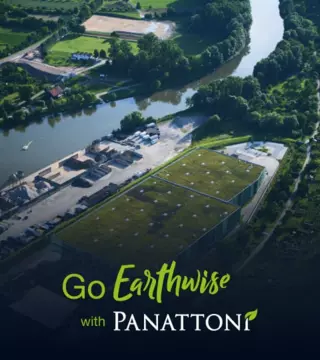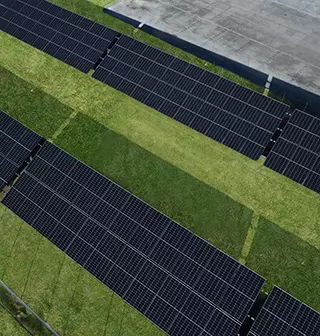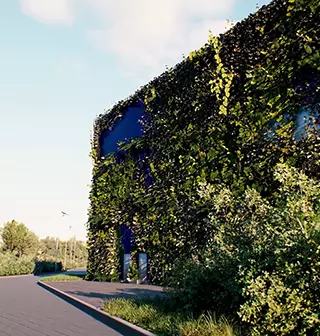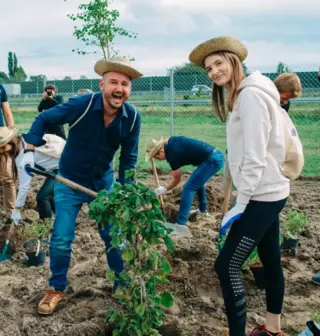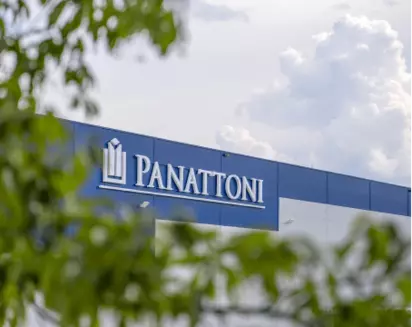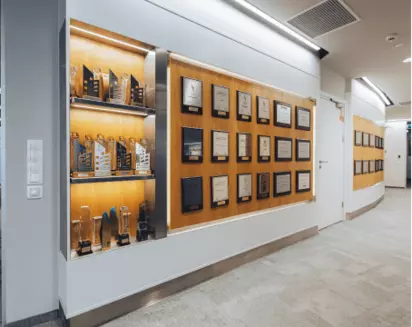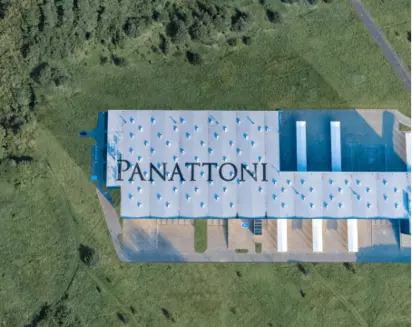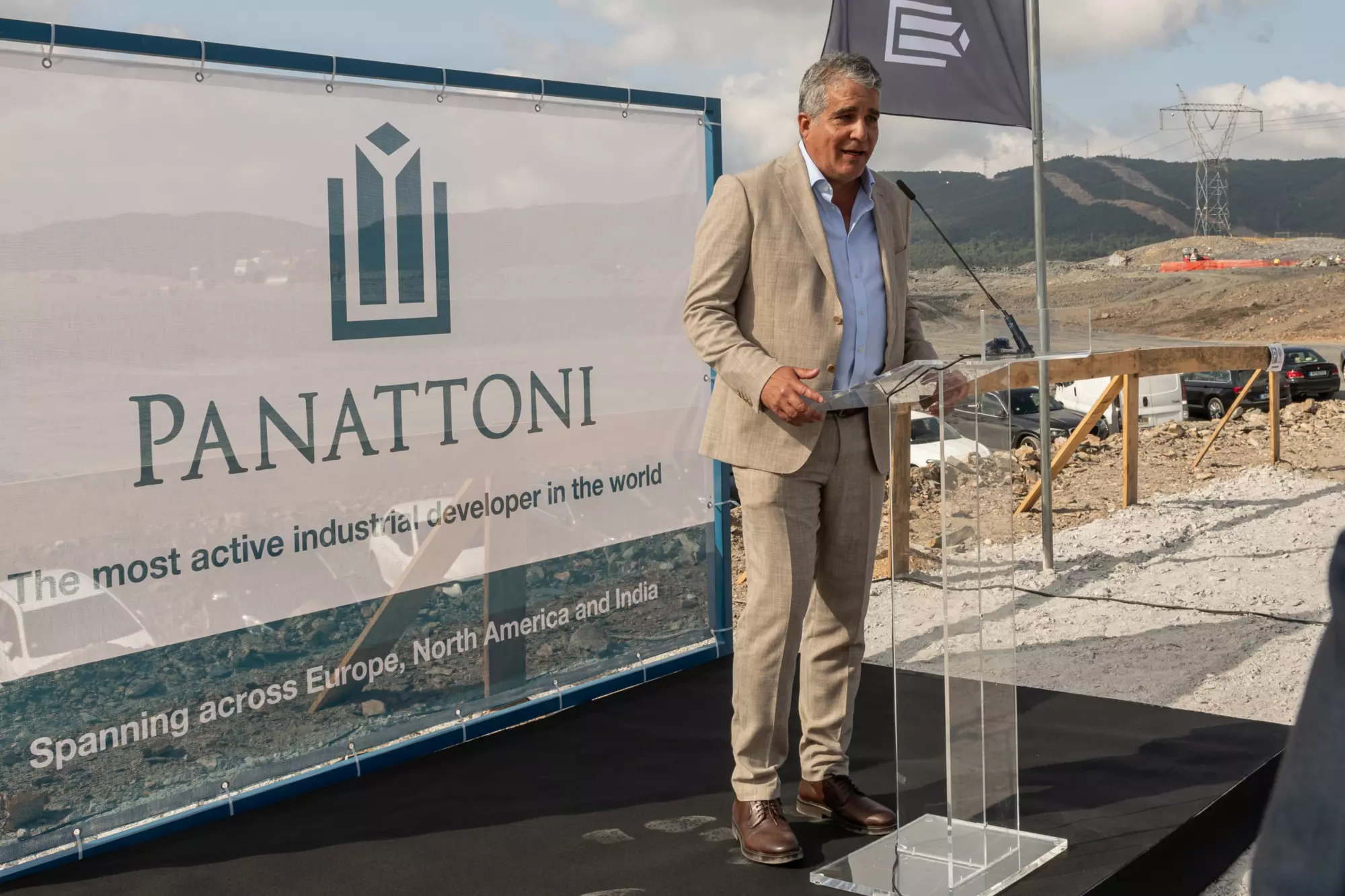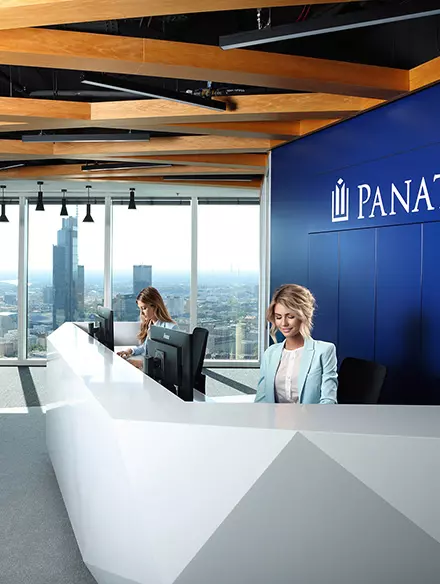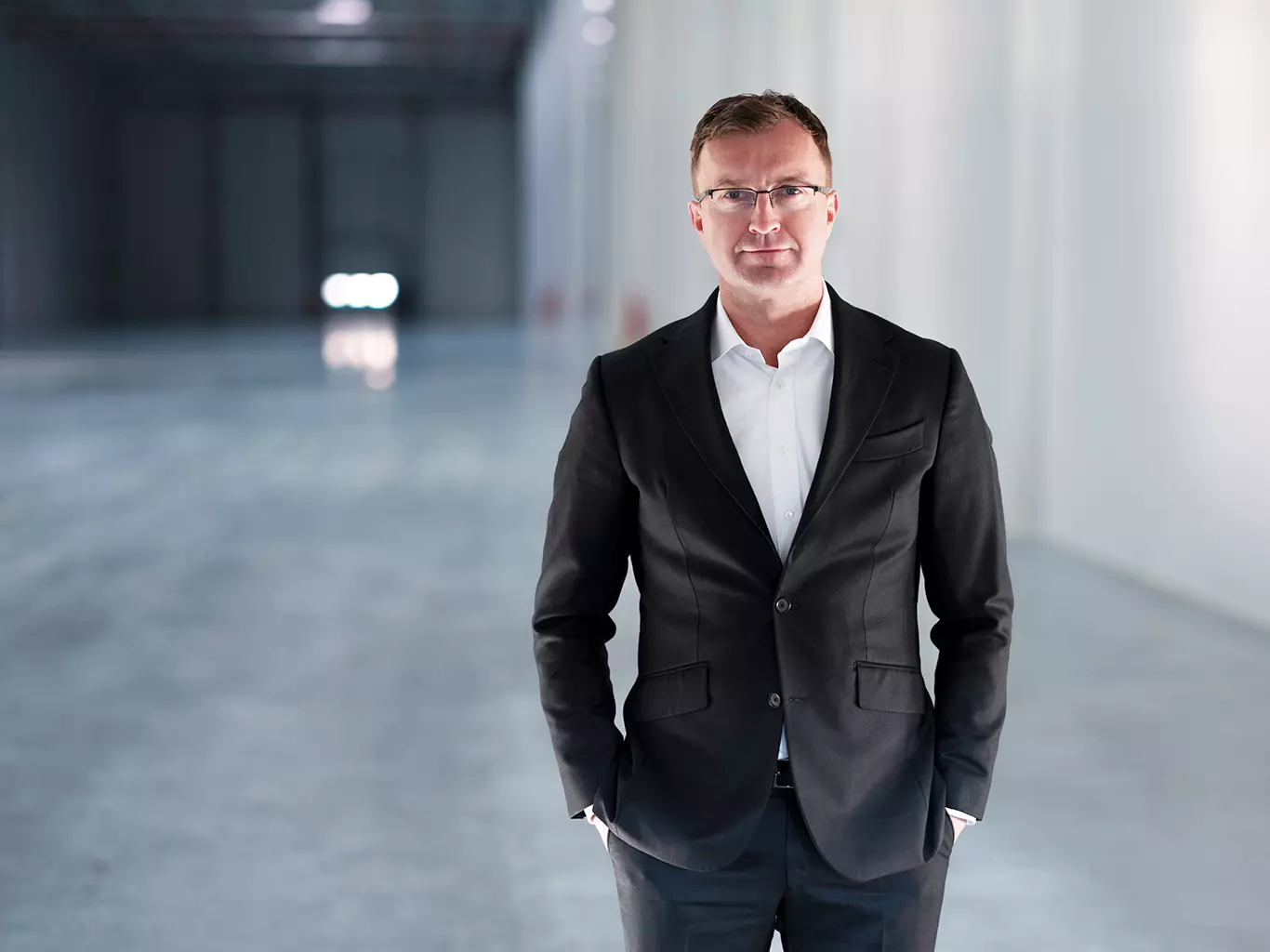
Forbes: It's extremely rare to take a job with a Western corporation and immediately become a shareholder. How did it happen that you became a partner with Carl Panattoni in its European business in your 20s?
Robert Dobrzycki, CEO and co-owner of Panattoni Europe and India: It started when, in 1999, in my fifth year of university, I quite by chance got a job in the finance department of the American industrial developer Menard Doswell & Co.
The company had a large Warsaw branch?
No, it was a small company, building a few warehouses each year, so it was quite easy to gain an overall knowledge of the development business. After six years of very intensive work, from practically the lowest position, the owner gave me the opportunity to manage the whole thing. However, the scale of the business was not growing, and I lacked some challenge despite being only 29 years old.
I guess that Carl Panattoni came across your path at that time.
Yes, he was at an industry conference in Prague and happened to be in Warsaw in passing. I was recommended to him as someone to talk to because I was "hungry" and looking for a challenge. The first meeting was quite relaxed. However, quickly began to reveal a lot of common views and outlook on business. I, after the first meeting, was already convinced that I wanted to work with him. I don't know about him, but in the next two days - it was Thursday and Friday - we met two more times and at the end he said: "Okay, then let's do business together." And then he went back to the States. I was left all alone in the service office in Warsaw. It was a shock.
So you started from a completely blank sheet of paper.
Yes, completely from scratch, alone. Only that I already had some industry experience and I think I knew how to go about it, or so I thought. After three years I was already employing a team of 120 people.
The pace was impressive.
I was 29 years old and wanted to push forward nonstop. At that time I was less preoccupied with questions about the ideal business structure. However, if I had started with today's state of my knowledge and awareness I probably wouldn't have done it at such a pace. A more mature and aware person works in a much more sustainable way, but each approach has its pros and cons.
What were your first projects?
In the first year I did two projects for Coty Cosmetics of 16,000 sqm in Bielsko-Biala and with H&M in Poznan of 52,000 sqm,. At the time, it was the largest transaction in the history of Poland. In fact, we theoretically shouldn't have won this deal, because it was a huge contract, and the organization was very young, however, very determined. The project was a great success. Since then, business has started to grow.
The funds to start the business were provided by Carl Panattoni?
Of course, the initial capital came from my partner.
At the time, the project financing model was similar to how it works today with a large share of debt financing?
It hasn't changed, the financing model is still the same as we have now. At that time, however, we didn't have such experience when it came to arranging capital for investments in Europe.
You were favored by the fact that you started in the period of the real estate boom
Probably so, but also very quickly, already in 2008 there was a market crash. Paradoxically, it turned out to be beneficial for us. This is because our competitors were large global organizations, which then came to a complete standstill. We slowed down the pace of business, but continued to be active. Transitionally, we may have gone down to 40-50 percent of pre-crisis volumes, which nevertheless strengthened us in terms of market share.
There were no problems with financing?
Yes there were, as it was a liquidity crisis. We quickly adapted the business to the new situation and gradually returned to our pace of operation. Two years later we were already the market leader.
What was the scale of your business then?
In 2008 it was probably 10 - 15 projects. That's about 150,000 sqm, while in my previous company I was building 10,000 sqm a year. We were really fascinated by these volumes, although today150 projects a year no longer impress us.
Such a big acceleration started in 2011-2012?
That's when I started to expand internationally. At first in the Czech Republic and Germany, and then I entered most of the important markets in Europe, including the UK, the Netherlands, Spain, France. There was a point when we opened an office in another country every few months. Business grew very quickly. Today I manage 17 countries in Europe plus India and Panattoni is probably the largest global player with such a large share of Polish capital.
If you look at all sorts of industry lists, you'll see that not only are you the largest in Europe - with investment projects worth nearly 5 billion euros - but that number two is behind you by some three lengths. How is that possible?
This is due to our business model, our approach to operations and the fact that we are a private company. We have never brought institutional capital to the balance sheet. However, it works very well with us at the level of individual investments. This model allows us to remain independent, flexible, and responsive. We have the freedom to operate by providing space to clients, financing in a way that is tailored to the client and the local specifics of capital.
There is no similar group to yours in the whole of Europe?
As a rule, the market is divided into large institutional players who do very selective deals with limited capital allocation to individual markets and a large number of small, local players. Panattoni is the only platform of this scale.
It's a bit like in residential real estate, where native, local developers have long been tied to particular cities. A significant part of your business is Poland.
That was the case in the beginning. Poland now accounts for 20 percent of our European business, and we continue to expand into other countries for further diversification. Our expansion so far has been logical. I have seen that Poland is growing very well, but there are always small parts of global capital allocated here. . So we thought, why not take advantage of that larger portion and enter the markets of Western Europe, where we also have access to our customer base that needs space. In this way, I wanted to improve the quality of our platform, and in doing so it quickly became apparent that the West is in many ways less competitive than Poland. There is a gap between global and local players. I tried to tap into it.
This is similar, for example, to the liquor market, where big companies such as Diageo are only interested in global brands, but 80 percent of liquors are local products made by domestic producers, who are, however, too weak in capital to significantly increase their market position.
An interesting analogy. Here, too, each side has its limitations. Once a large player has filled an allocation to a particular market, such as France, even if Amazon comes in, it won't invest in another facility. On the other hand, small players don't have good access to capital, experience and resources, and our global platform offers unlimited capital. We can deliver warehouses for Amazon or any other player at any time and in several markets simultaneously. As I said, the driving force behind our business is that we operate without imposed restrictions. Many developers can't do another deal until they sell the previous one. Meanwhile, for us, each project is separate. It has an assigned capital, debt, its rate of return, etc. One investment is independent of another. For us, real estate is the resource for doing business. We look at ourselves as a platform to serve investors and customers.
So I take back my previous comparison. You are more like Dino, which also fits in between big players interested in select, urban locations, like Jeronimo Martins or the Schwartz Group, and local stores that don't have the resources to expand. On the other hand, Dino is not an ordinary retail chain, but a kind of factory of very similar stores, which it locates very precisely, so that it can easily predict their performance. For Mark Biernacki, supermarkets are the same business matter as warehouses are for you.
We certainly have a volume approach and try not to unnecessarily complicate our business. We reproduce similar proven patterns. We adapt to the local market, because each has its own characteristics, but rather we try to put up and scale standard buildings. We also have ways to identify suitable locations. They all have similar characteristics. If we know that 2 million people live somewhere, there is an airport, a ring road, then we are left with an analysis of competition, supply and vacancy. This is a very simple analysis. You don't need a PhD to do it.
A significant partner that made an impact on your growth was Amazon. You started working with it more than a decade ago, but it especially drove business during the lockdown and e-commerce boom. That's when you grew a lot.
The beginning of 2020, of course, brought uncertainty, but also a surge in e-commerce growth. Amazon is a kind of litmus test for us, showing which way the market can go. It then abruptly began to expand its infrastructure by creating a network of buildings with a huge scale of 100-200 thousand square meters with a capital value of 100-200 million euros.... The whole industry followed it, including us. And this growth was indeed very dynamic.
I understand that your extensive experience with Amazon was a driving force for you and the best possible reference.
Amazon is our largest customer in Europe, and in a way we have opened several markets to meet its needs. When Amazon enters a new global market you have to create new infrastructure for it. The scale of these projects meant that we were able to enter these markets right away with high volume. Then more customers started coming in, too. Many years of experience in setting up infrastructure for e-commerce was, of course, our important asset.
And was the Panattoni brand itself helpful in business development?
The brand was not known in Europe. Of course, we leveraged on it from the beginning, but in the end we created it ourselves to a large extent. In the US, the Panattoni brand is not as well-known as in Europe. Our growth and market success made people think of Panattoni as a European brand, while it is a global company with a very strong American business.
Today you also have a 25% stake in the European group. Was this the division from the beginning?
I got part of the shares right away and increased them over time, and today it's greater than the aforementioned 25 percent.
Given the scale of operations, the value of your package can be estimated at several hundred million euros. Is there a prospect for further growth?
I am satisfied with the percentage share, as it is also structured as an equal decision-making vote with Carl Panattoni. As for the value of the stake, there are different valuation methods, but it is clear that my goal is to increase the value of the company and to continuously grow. I am planning a major Asian expansion and the development of ancillary businesses around the 'core', which is the development company.
After so many years, the Panattoni brand has also acquired certain attributes. For example, Polish developers praise your momentum and efficiency in your operations, but they also feel that you are a very tough player. The kind that there is no mercy and preferential treatment for anyone.
If the market says we are a tough player then I take it as a compliment. I run a flexible business making quick decisions and not everyone can afford to do that.
I understand that without it you would not be where you are today. However, I wonder how it is with business development in foreign markets, where you have to rely on local management.
In Poland, too, there is local management. I have hired and work on a daily basis with each of the countries' heads. We have the same model everywhere.
But if you have such a different mindset from the rest, how do you get the right people for you, who, after all, come from this cautious real estate industry.
Contrary to appearances, we are very careful, but maybe we see more. Of course, we need people with a broader horizon and it's not easy. Especially in old markets, which have their own approach to many things. Sometimes it takes a while before someone catches on to our way of doing things - more open and holistic. Such a manager has to keep an eye on a lot more than he or she has in the scope of responsibilities. I choose entrepreneurial people with business intuition, which is not easy in Western Europe.
To what extent is Panattoni's success due to the fact that in Europe it started in the Polish market, which is much more dynamic and promotes entrepreneurship? If you build your genotype here, Western Europe can look twice as slow and easy to dominate.
For developers, Poland is certainly friendly in terms of ease and speed of construction and commercialization. A limitation is the poor liquidity of the market, but the development process itself is very good. In Germany, for example, it takes much longer - access to land is more difficult and administrative processes are slower. If we had started there, we might not have been able to do such a big business. By starting in Poland, we built a critical mass and increased our capacity. This allowed us to be more patient in Germany. There, too, we are now the market leader with a 15 percent share. We achieved this in a decade, starting from scratch. And that's something! Today we are similarly growing in Italy, for example, where you also have to be patient. However, we lack neither patience nor efficiency.
You go much further, by the way, because as I understand it, the Panattoni group can develop all over the world, except for North America. Now you have taken India as your target market.
Yes. India is our first Asian market, a place with huge potential, very interesting geopolitically these days.
Are you already carrying out your first project there?
Yes, in New Delhi. We have 20 people on board and quite a few projects planned. We have opened three offices - in Bangalore, Delhi and Mumbai, but it took us some time to purchase our first land. This is significant, because the acreage availability problem is not there, but there are few properties that qualify, have ownership title and the infrastructure necessary for development. The infrastructure is poor and there is no well-connected land with access to routes. This market is very immature, but with enormous potential.
Are there any further directions of development as well?
Yes we want to expand further in Asia, but we are also interested in the Middle East. We have a plan to open an office in Saudi Arabia at the beginning of the year, and from the Asian markets Japan seems interesting and looking further afield also Australia.
You are looking for new spaces, but it seems that Europe itself is getting a little short of breath. In France or the UK, e-commerce has started to saturate a bit after the boom.
Such a correction is quite natural. The pandemic crisis has greatly inflated infrastructure needs and increased logistical resources. It will take some time to recover, but the fundamental increases will return.
However, this means a decline in demand for warehouses.
The decline in e-commerce is obviously having a significant impact, but our business is diversified. An important factor affecting it today, for example, is nearshoring, related to shortening supply chains. More factories and more logistics facilities are not opening in Vietnam or China, but in Europe, including Poland, the Czech Republic, and Hungary. Traditional trade, manufacturing, all industries show demand for warehouses.
So you are going up all the time?
That was the case until 2022. It was a peak. An emergency situation. Then there was a general slowdown and we went down to 2020 levels. It looks like 2024 will be better than last year, and further on we should already be recording stable increases.
The time of easy and cheap money has also come to an end in 2022. To what extent does this affect the investment aspect of your business?
Certainly, investment demand for real estate has decreased. The main reason is the increase in interest rates and unstable property values caused by this. It looks like 2024 should be the year of recovery.
Is that where the idea to create your own fund came from? To fill this capital gap and bring in investors who are not flocking to Poland?
Poland is part of our business. We are a very large-scale company. We plan to continue with our business model and the way we operate. I see the creation of funds independent of the 'core' business but cooperating as a step forward, developing new business, but also deepening the platform. .
And don't you have the ambition to have a fund that will be a holding company i.e. the ultimate owner of the properties you put up yourself? That would make it easier for you to liquidate projects.
Around our core business we want to do additional business, but only the next stage will be a real estate hold. Initially, we are focusing on developer funds.... We have noticed that pension funds, government funds, operate at such a scale that it is hard for them to channel money to individual strategy projects. They don't fund real estate at the project level, because they don't have the hands to do the work and analysis, but they want to make money from the development process. That's why we have created a European platform that will enable these investors to participate in the development process, and allow us to further streamline the system. This is what I was talking about earlier: we treat real estate as business matter, on the basis of which we build further ventures. This gives us the opportunity to develop business in more areas in addition to geographic expansion. Even though Panattoni is already very large, the potential to scale is still huge.
